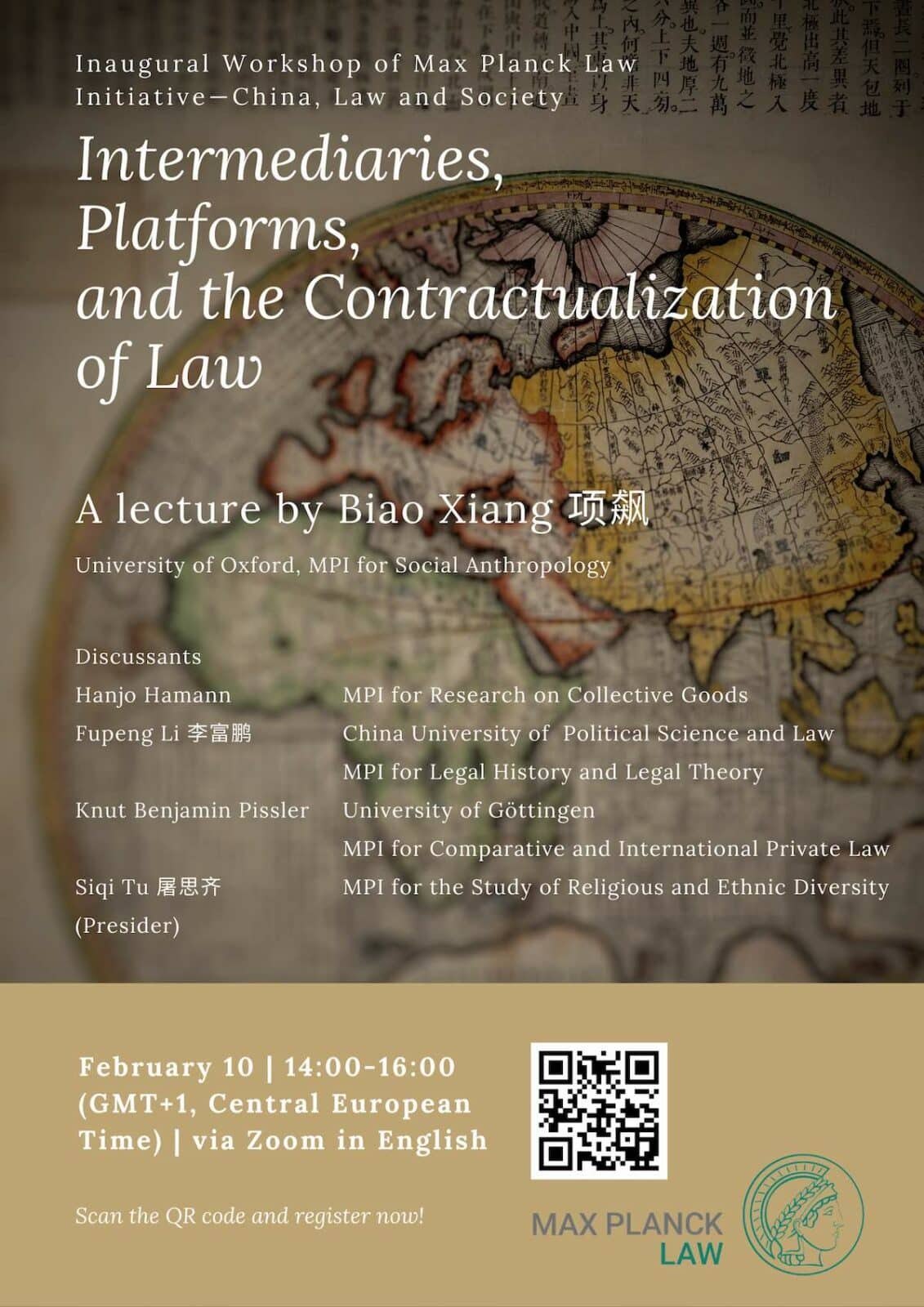Artificial Intelligence (AI) technologies, which constitute the backbone of the platform economy, are arguably redefining some foundational notions in economics and in law. AI challenges our conventional understandings about currency, ownership, value, labour and job. At the same time, AI threatens to replace general laws with individual contracts that are specific to each transaction and that are automatically administrated by algorithm (thus ‘contractualization’). What are possible implications of these changes? This talk contributes to the debates about this question by drawing on my ethnographic study on a migrant community in Beijing in the 1990s, and my ongoing learning about the platform economy in China and beyond. The talk suggests three points. (1) The AI-enabled platform model may not be unique; the migrant community was based on cybernetically networked transactions without clear definition of property rights and was largely independent from legal interventions. (2) This model of informal economy broke down when marketplaces, the central infrastructure that intermediates transactions, were assigned property rights and became a financial asset. (3) The current platform economy seems to introduce a virtual “feudalism” by centralizing its intermediary power, and is less democratic than the informal economy. Within its ‘manor’, the platform replaces laws with its own rules and contracts, subjugates participants as ‘subjects’ rather than ‘citizens’, and extracts rents based on its monopoly of the intermediary position. My thought is preliminary, and I am particularly keen to learn from legal and economic experts how we should theorize intermediary.
Initiatives
Intermediaries, Platforms, and the Contractualization of the Law

Professor Dr Biao Xiang is Director at the MPI for Social Anthropology and Head of the Department ‘Anthropology of Economic Experimentation’.
More Events